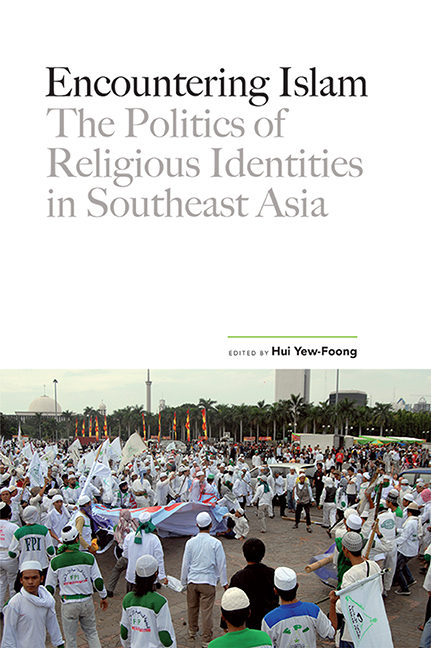Book contents
- Frontmatter
- Contents
- Acknowledgements
- Contributors
- Part I Introduction
- Part II Islam across Borders
- Part III Malaysia
- 5 Legal-Bureaucratic Islam in Malaysia: Homogenizing and Ringfencing the Muslim Subject
- 6 The Letter of the Law and the Reckoning of Justice among Tamils in Malaysia
- 7 Islamization and Ethnicity in Sabah, Malaysia
- Part IV Indonesia
- Part V Muslim Minorities
- Index
7 - Islamization and Ethnicity in Sabah, Malaysia
from Part III - Malaysia
Published online by Cambridge University Press: 21 October 2015
- Frontmatter
- Contents
- Acknowledgements
- Contributors
- Part I Introduction
- Part II Islam across Borders
- Part III Malaysia
- 5 Legal-Bureaucratic Islam in Malaysia: Homogenizing and Ringfencing the Muslim Subject
- 6 The Letter of the Law and the Reckoning of Justice among Tamils in Malaysia
- 7 Islamization and Ethnicity in Sabah, Malaysia
- Part IV Indonesia
- Part V Muslim Minorities
- Index
Summary
The normative foundation of the secular state as the separation of religion and the state embodied in much liberal theorizing is becoming untenable in most developing countries. Such perspectives on the ideas of the secular state, it is suggested, underestimate the complexity of the relationship between the religious and the political in many non-Western societies (Bajpai 2002) and, in a curious way, actually privilege a particular Judeo- Christian perspective on the state (Hurd 2008). In contemporary politics, many — if not most — Western countries have subscribed to the norms of secularism. The European/North American “secular age” is characterized by the absence of God in the institutions and practices of the state, followed by the retreat of religious faith into the private sphere (Taylor 2007). God no longer plays a role in governments and politics, and there is an increasing trend towards the privatization of religion in modern societies that witnessed the gradual institutional disengagement or separation of the church and state. Even within this Western context, however, nuanced differences in the interpretation and meaning of “secularism” are evident, as witnessed by the divergence between the U.S. version of secularism, which was originally developed to protect religious institutions from state influence and French laïcité which seeks to protect the state from the influence of religion (Gunn 2004). The history of colonialism and the politics of nationalist movements played important roles in disseminating ideas of secularism, particularly via the dynamics of emerging nation-states (Taylor 2009).
Secularism becomes subject to state negotiation and the interpretation of the public role of religion in society (Yavuz 2009). In the Southeast Asian context, religion remains publicly visible in politics, culture and society but that does not mean that ideas of the secular were never envisaged in the trajectories of state building. The interpretation of the secular and its debates need to be explored in the context of their historical and political contingencies to illuminate contemporary understanding of the state and its relationship with religion. In this chapter, I examine the notions of the “secular” and how its practical relevance as an element of governance in Malaysia is diminishing. Yet in the study of the role of religion in politics, the “secular” cannot be divorced from broader issues of identity and political mobilization in many multicultural states.
- Type
- Chapter
- Information
- Encountering IslamThe Politics of Religious Identities in Southeast Asia, pp. 158 - 188Publisher: ISEAS–Yusof Ishak InstitutePrint publication year: 2012

